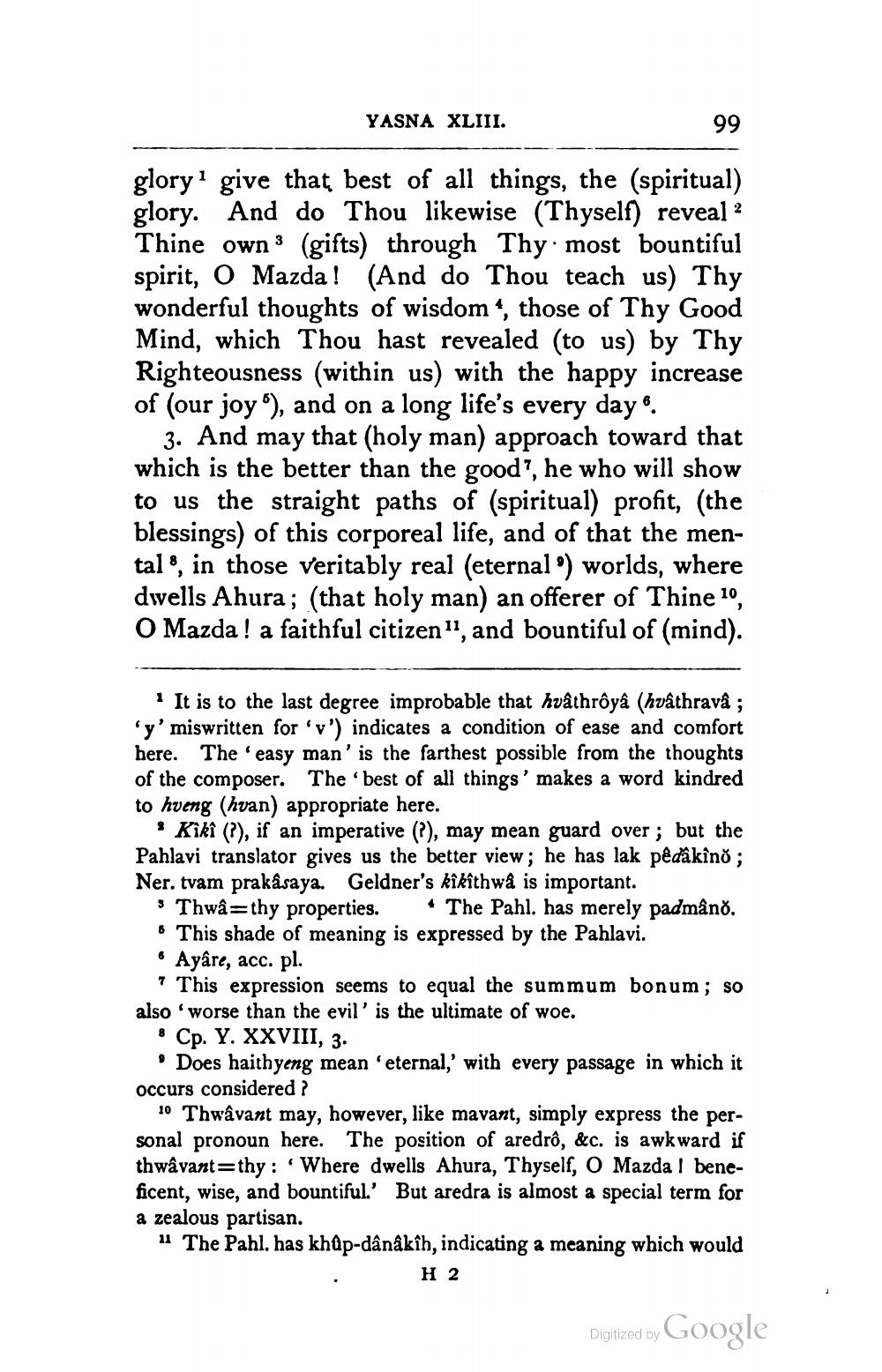________________
YASNA XLIII.
glory give that best of all things, the (spiritual) glory. And do Thou likewise (Thyself) reveal ? Thine owns (gifts) through Thy.most bountiful spirit, O Mazda! (And do Thou teach us) Thy wonderful thoughts of wisdom, those of Thy Good Mind, which Thou hast revealed (to us) by Thy Righteousness (within us) with the happy increase of (our joy'), and on a long life's every day.
3. And may that (holy man) approach toward that which is the better than the good?, he who will show to us the straight paths of (spiritual) profit, (the blessings) of this corporeal life, and of that the mental®, in those veritably real (eternal") worlds, where dwells Ahura; (that holy man) an offerer of Thine 10, O Mazda ! a faithful citizen", and bountiful of (mind).
* It is to the last degree improbable that hvåthrôyâ (hváthrava; 'y'miswritten for 'v') indicates a condition of ease and comfort here. The easy man' is the farthest possible from the thoughts of the composer. The best of all things' makes a word kindred to hveng (hvan) appropriate here.
* Kiki (), if an imperative (?), may mean guard over ; but the Pahlavi translator gives us the better view; he has lak pêdãkîno; Ner. tvam prakåsaya. Geldner's kikîthwå is important.
Thwa=thy properties. The Pahl. has merely padmâno. • This shade of meaning is expressed by the Pahlavi.
Ayâre, acc. pl. 7 This expression seems to equal the summum bonum; so also 'worse than the evil' is the ultimate of woe.
8 Cp. Y. XXVIII, 3.
• Does haithyeng mean 'eternal,' with every passage in which it occurs considered ?
10 Thwavant may, however, like mavant, simply express the personal pronoun here. The position of aredrô, &c. is awkward if thwâvant=thy : Where dwells Ahura, Thyself, O Mazda I beneficent, wise, and bountiful.' But aredra is almost a special term for a zealous partisan. 11 The Pahl. has khUp-dânâkîh, indicating a meaning which would
H 2
a zení mise, and
Digitized by
Digitized by Google




